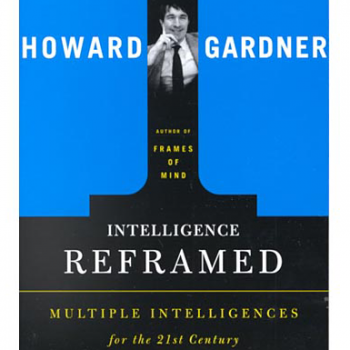
Intelligence Reframed: Multiple Intelligences for the 21st Century
PUBLISHED:AUTHORS: Howard Gardner
Resource Summary
In this book, Howard Gardner describes how the theory of multiple intelligences has evolved and been revised since its introduction in 1983. He introduces here the possibility of three new intelligences and argues that the concept of intelligence should be broadened, but not so much that it includes every human faculty or encompasses specific value systems. As well as responding to some of the critiques of the theory, he offers practical guidance on its educational uses in schools and museums and speculates about the relationship between multiple intelligences and the future world of work. ISBN-13: 978-0465026111



-
-
-
-
-
-
Support PZ's Reach